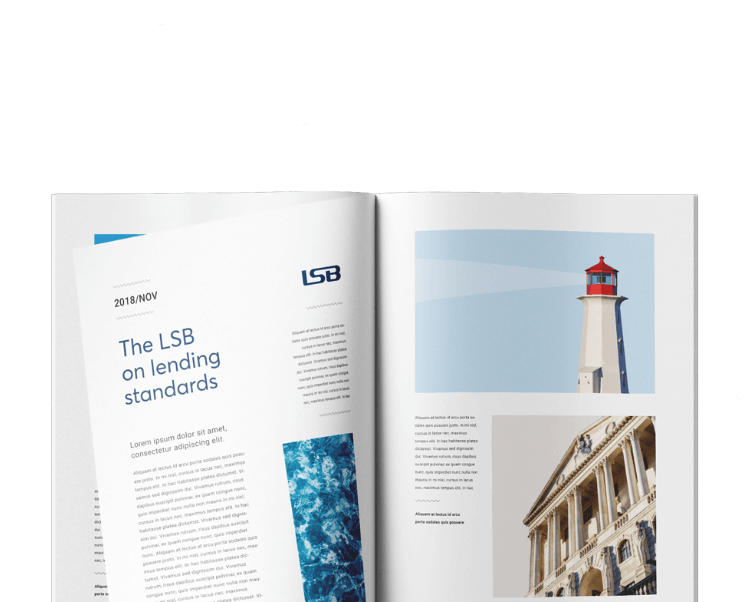One focus for I&S is to deliver ERFs for the Bus. Standards and consider how the views of RFs can inform future IFPs.
Now that sentence makes sense to me. However, to 99.9% of people, it is incoherent gobbledygook. This is because each organisation and business sector seems to have two roles, firstly, to conduct its business and serve its customer base, and secondly, to create a new sub-language that alienates those not involved in it.
The financial services industry is perhaps guilty of this. To a degree this is understandable. Many financial terms are describing complex or specific things. With this in mind, long descriptive words tend to arise which are then contracted into acronyms. When everyone involved in a discussion is on the same page and really understands the terms, there are clear advantages to them. They save time explaining understood concepts and can help foster a shared identity and corporate culture. Google even trains its new recruits to learn ‘googly’ terms during their onboarding to help achieve this.[1]
Lack of clarity, increased risks
However, in financial services, is there a risk that the use of acronyms, jargon, or non-inclusive communication methods could lead to bad outcomes? Could unclear language and inaccessible channels cause confusion amongst both staff and customers? If so, this risk may need mitigating through training and efforts to focus on clarity and keeping it simple.
To illustrate this, let us consider some essential terms that are used on a regular basis, such as vulnerability or financial difficulties. It could be that these terms are not well defined or explained to staff members within a firm, leading to an inconsistency of understanding and approach. This would likely affect how customers are treated, as staff would not be applying consistent measures to those needing additional support. The same is true of technical terms or acronyms that may be widely used but not always understood. For example, if the term BSU (Business Support Unit) is not properly explained to new staff members, how can they refer business customers in difficulty to it at the right time?
It may also be that terms or acronyms are used which could be confusing to customers. The Financial Ombudsman Service recognised this and the potential dangers of acronyms. ‘While they are a useful ‘shorthand’ for those ‘in the know’, they create a barrier for people who don’t instantly recognise these terms and don’t know what they stand for.’[2] For this reason, the Financial Ombudsman Service never uses the term ‘FOS’ and encourages others to use the organisation’s full name when referring to it.
External communications
At the point of sale, firms will already know the importance (both in regulatory, legal, and best practice terms) of ensuring customers understand what they are reading and agreeing to. The impact of any agreement in terms of fees, charges, or interest rates must be set out and clear before the product is taken out. It is vital though that efforts to be understood and accessible go beyond the point of sale and flow across the entire customer journey.
Reviewing communications in this context is important to make them appropriate for the wide audience that may access them. This means considering the financial inclusion elements of any communications, to ensure that efforts to engage the customer do not inadvertently lead to bad outcomes and exclusion. Having vulnerability and accessibility specialists from within the firm train and advise communication teams can help reduce the likelihood of detrimental changes being made.
Such changes can easily occur, even with the best of intentions. A recent example of this followed the death of HRH Prince Philip. Network Rail and National Rail attempted an act of digital remembrance by greyscaling their websites following the announcement. This led to a number of visually impaired customers being unable to use them. As a secondary matter, it led to complaints about the change and negative coverage across national and social media.[3]
Internal communications
Alongside any external communication approach, firms should also consider how they communicate internally. Research by software consultancy JS3 Global examined Google search data to see how often corporate terms are looked up. Leading the pack were terms such as ‘leverage,’ ‘due diligence’, ‘robust’, and ‘synergy.’ JS3 commented on its research that, when onboarding new starters, you may ‘expect them to know what the term ‘due diligence’ means, and yet the meaning of the term is searched over 8,000 times a month – suggesting that a lot of people aren’t familiar with it.’[4]
This illustrates the importance of never assuming knowledge on the part of someone you are communicating with. This is especially the case when onboarding new staff into a firm where specific jargon or acronyms may be commonplace. Knowledge should also never be assumed when speaking to customers. For example, if a staff member is about to take a customer ‘through an I&E’, it should be explained what an income and expenditure assessment is, how it works, and what its benefits are.
When thinking about internal and external communication, the message could be distilled to ‘keep it simple’. There are of course complex products and ideas within financial services that are not always easily distilled into snappy and concise terms. However, by being inclusive, tailoring our communication style to the audience, and providing good explanations, we can win in the fight against jargon.
If there is any way that the LSB can assist you or your firm, please contact us at insight@lstdb.org.uk or using the details below.
Contact details
Anna Roughley – Head of Insight & Support
annaroughley@lstdb.org.uk – 07392 867 176
Harry Hughes – Senior Insight & Support Manager
harryhughes@lstdb.org.uk – 07387 108 498
[1] Harvard Business Review, Do you have a jargon problem?
[2] Financial Ombudsman Service, Ombudsman News
[3] Guardian, Visually impaired users complain after rail websites go greyscale for Prince Philip
[4] JS3 Global, The UK’s most confusing workplace jargon
Download a copy of this article here.






